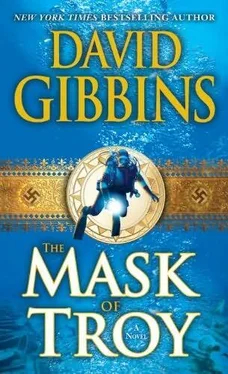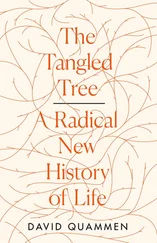David Gibbins - The Mask of Troy
Здесь есть возможность читать онлайн «David Gibbins - The Mask of Troy» весь текст электронной книги совершенно бесплатно (целиком полную версию без сокращений). В некоторых случаях можно слушать аудио, скачать через торрент в формате fb2 и присутствует краткое содержание. Жанр: Триллер, на английском языке. Описание произведения, (предисловие) а так же отзывы посетителей доступны на портале библиотеки ЛибКат.
- Название:The Mask of Troy
- Автор:
- Жанр:
- Год:неизвестен
- ISBN:нет данных
- Рейтинг книги:3 / 5. Голосов: 1
-
Избранное:Добавить в избранное
- Отзывы:
-
Ваша оценка:
- 60
- 1
- 2
- 3
- 4
- 5
The Mask of Troy: краткое содержание, описание и аннотация
Предлагаем к чтению аннотацию, описание, краткое содержание или предисловие (зависит от того, что написал сам автор книги «The Mask of Troy»). Если вы не нашли необходимую информацию о книге — напишите в комментариях, мы постараемся отыскать её.
The Mask of Troy — читать онлайн бесплатно полную книгу (весь текст) целиком
Ниже представлен текст книги, разбитый по страницам. Система сохранения места последней прочитанной страницы, позволяет с удобством читать онлайн бесплатно книгу «The Mask of Troy», без необходимости каждый раз заново искать на чём Вы остановились. Поставьте закладку, и сможете в любой момент перейти на страницу, на которой закончили чтение.
Интервал:
Закладка:
He opened his hand to reveal a shapeless lump about two inches across, discoloured with red and brown oxidation. Gladstone peered closely at it, bringing up his monocle again. ‘Mmm. Ferrous concretion, unless I am mistaken.’
Schliemann nodded, then held the lump between his thumb and forefinger. ‘This, gentlemen, is another arrowhead. But not an arrowhead made of bronze. An arrowhead made of iron.’
‘Of the age that followed the fall of Troy, you mean?’ Hoar murmured. ‘Some great battle of the Dark Ages, unknown to history, fought in the ruins of Troy?’
Schliemann shook his head emphatically. ‘These arrowheads were all found in the destruction layer of the seventh citadel. Homeric Troy. They were found intermingled with bronze arrowheads. After Sophia recognized this lump for what it was, we re-examined a section of the rampart we had exposed all those years ago. We found two bronze arrowheads and three of these iron ones, embedded at different places in the outer wall.’
‘Arrows fired by an attacker,’ Gladstone murmured.
‘You follow my train of thought, Mr Gladstone.’
Bismarck thumped his stick down. ‘Superior technology,’ he exclaimed. ‘That is what you have discovered, Herr Schliemann, yes? Superior technology.’
‘He who possessed iron in the age of bronze possessed the advantage,’ Gladstone said.
‘As he who possesses the Maxim gun in the age of the musket is tempted to war,’ Hoar murmured.
‘An advantage not in the quality of weapons, but in their quantity ,’ Schliemann continued. ‘We are speaking of the very cusp of the age of iron, when the technology was in its infancy. The quality of this iron, the edge, the strength, may not have been greater than the best bronze. But that is not the point, gentlemen. The point was made by Mr Gladstone. Tin is exceedingly rare. It was worth its weight in gold. But iron ore is found virtually everywhere. Once you have mastered the technology, you have an unlimited raw material. And if you are the first to master the technology, before it becomes widespread, then for a few years, for a few decades perhaps, you reign supreme. You are king of kings. You are god.’
‘Agamemnon,’ Gladstone breathed. ‘You speak of Agamemnon.’
‘Troy was felled not by a trick of Odysseus, not by a wooden horse,’ Hoar murmured. ‘But by another kind of cunning. By the cunning of Hephaestus. By the cunning of the forge.’
‘Perfectly put, Mr Hoar,’ Schliemann said.
‘Herr Schliemann? You have a theory?’ Bismarck asked, stomping his cane again. The three men looked at Schliemann expectantly. He pocketed the arrowheads, and took a deep breath. ‘The twenty years since I first set foot on the mound of Troy have been a whirlwind for me. Some would say that I have been restless, unable to concentrate. Within two years of arriving here I announced the discovery of the treasure of King Priam. Then I went to Mycenae, and found the Mask of Agamemnon. Then I travelled around Greece, searching for the other great Bronze Age palaces, at Tiryns, at Ithaka, at Orchomenos. I went to Sicily, on the path of those western Phoenicians, the tin traders. Then I went to Egypt. I told them I was searching for the tomb of Alexander the Great, in Alexandria. The world thought I was on the hunt for yet more gold. Heinrich Schliemann, self-made millionaire, who made his fortune on the back of the California gold rush, had seen the lustre of gold at Troy and Mycenae and had fallen bewitched again, lured by Mammon. My critics shouted with glee. They were vindicated. I was no archaeologist, I was a treasure-hunter. But they were wrong.’
‘They were wrong,’ Gladstone murmured, ‘because you were not in search of gold. You were in search of bronze and iron.’
Schliemann clapped his hands. ‘Mr Gladstone!’ he declared. ‘You do understand me.’ He stared at them intensely, then pointed down the passageway. ‘The very last place where Sophia and I dug all those years ago was right here, where we stand now. We found something extraordinary, something we knew would take weeks more, months more, to dig out. We sealed it up, intending to return. I went to Mycenae seeking confirmation, and seeking a key. And I found it, gentlemen. I found it. We uncovered the shaft graves, the Mask of Agamemnon. But we also found another tomb, the great beehive-shaped structure I called the Treasury of Atreus. I was elated. I went to the other palaces, and I found more of them, more so-called tombs. And then to Egypt. Beneath Alexandria I found not the steps down to the tomb of Alexander, but something infinitely older. And then in a blinding flash I knew what the pyramids were for. Tombs, gentlemen, royal tombs to be sure, like the tombs of the Mycenaeans, but something else. The pyramids were erected at the beginning of the Bronze Age, with the explosion of power and wealth that bronze created. The Bronze Age, gentlemen. Structures meant to safeguard the treasures not just of the dead, but of the living as well.’
‘The Treasury of Atreus,’ Hoar murmured, the shadow of a smile on his face. ‘I believe, Mr Schliemann, you have surpassed yourself. You have kept this trail you are on a secret, yet like any good explorer you have left clues, a safeguard, perhaps, against calamity, that some future-day archaeologist might follow. Clues in the names.’
‘You chose not to call it the Tomb of Atreus,’ Bismarck exclaimed. ‘You chose to call it the Treasury of Atreus.’
‘And not a treasury of gold,’ Gladstone rejoined. ‘But a treasury of bronze.’
‘Herr Bismarck asked if I had a theory,’ Schliemann said. ‘So here it is. The advent of bronze technology, two thousand years before the fall of Troy, was the most revolutionary advance in human history. For the first time, people had good agricultural tools, ploughshares and sickles. They had tools for carpentry, and for masonry. And they had superior weapons.’ He delved in his pockets, and produced a clear flint arrowhead in one hand, and a leaf-shaped metal one in the other. ‘Stone points, like this one we found in the oldest Troy layer, little different from chipped tools made by their ancestors of the Stone Age, gave way to bronze weapons like this one. But there was a rub. The tin needed to make bronze was always in short supply. It was hugely prized. The power of chieftains rested on it. The smiths – the bronze-workers – were kept within the walls of palaces, of citadels. Supplies of tin and bronze were closely guarded. Great vaults were built, places that doubled as the burial ground of kings. Vaults such as the Treasury of Atreus at Mycenae. Vaults such as the one that I believe lies before you down this passageway, gentlemen, dug into the limestone deep beneath the citadel of Troy.’
‘You have brought us to see the treasury!’ Gladstone exclaimed.
Schliemann held up his hand. ‘There is another rub. A most extraordinary one. Bronze tools, carefully controlled, doled out by the king, their use supervised, allowed the city-states of the Aegean to flourish. A brilliant civilization emerged. But I know the question you are asking yourselves, gentlemen. You are politicians. You have seen what men will do. At Gettysburg, at Sedan. Give them weapons, and they will make war. And in the Bronze Age Aegean, men did fight. We know about it from Homer. The clashes of arms, the bellows and taunts of the victor, the cries of the vanquished. But these are individual combats, not pitched battles. Why? Because there was never enough bronze to equip a city-state with an army large enough to take on another city, to lay siege to it and conquer it. And sheer force of numbers was never possible, huge numbers like the sweeping tides of men we know fought battles in the ancient Near East. The mountain-girt valleys of the Aegean did not have the population, the surplus manpower. Homer reveals it: individual kings in the Greek forces contributed all they had, but it was often merely a few ships, a few hundred men. He gives us a blood-soaked stage, true, but we watch his heroes just as Romans watched gladiators, or as the masses of our industrial age might view a sporting fixture. This was a world of peace, gentlemen, of peace that spawned a brilliant civilization, a civilization that grew so fast and so strong that it outstripped the ability of men to destroy it with the technology at their disposal.’
Читать дальшеИнтервал:
Закладка:
Похожие книги на «The Mask of Troy»
Представляем Вашему вниманию похожие книги на «The Mask of Troy» списком для выбора. Мы отобрали схожую по названию и смыслу литературу в надежде предоставить читателям больше вариантов отыскать новые, интересные, ещё непрочитанные произведения.
Обсуждение, отзывы о книге «The Mask of Troy» и просто собственные мнения читателей. Оставьте ваши комментарии, напишите, что Вы думаете о произведении, его смысле или главных героях. Укажите что конкретно понравилось, а что нет, и почему Вы так считаете.












